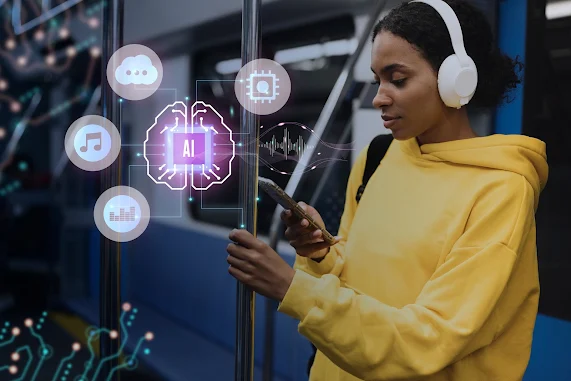AI in Customer Service: Delivering Exceptional Customer Experiences with Automation
Introduction
In the fast-paced world of business, customer service is a cornerstone for success. As technology continues to evolve, artificial intelligence (AI) has emerged as a game-changer in the realm of customer service, revolutionizing the way businesses interact with their clientele. This article explores the impact of AI on customer service, highlighting the benefits of automation in delivering exceptional customer experiences while addressing common concerns and challenges.
The Rise of AI in Customer Service
Traditional customer service models often involve human agents handling inquiries, resolving issues, and providing support. While human interaction remains essential, AI has introduced a new layer of efficiency and scalability to customer service operations. Here's how AI is transforming the landscape:
Automated Responses and Chatbots
AI-powered chatbots have become ubiquitous in providing instant responses to customer queries. These virtual assistants can understand natural language, analyze customer intent, and offer solutions or direct users to the appropriate resources. By handling routine queries, chatbots free up human agents to focus on more complex issues, improving overall efficiency.
Predictive Analytics for Personalization
AI leverages predictive analytics to analyze customer data and behavior, enabling businesses to personalize interactions. From recommending products based on previous purchases to tailoring marketing messages, AI enhances the customer experience by making interactions more relevant and personalized.
24/7 Availability
AI-driven customer service operates around the clock. Unlike human agents who have limitations, AI systems can handle inquiries at any time, providing customers with instant support and information, regardless of time zones or business hours.
Benefits of AI in Customer Service
The integration of AI into customer service offers a myriad of advantages that contribute to enhanced customer experiences and streamlined business operations.
Improved Efficiency
Automation of routine tasks allows human agents to focus on more complex and emotionally demanding customer issues. This leads to faster response times, reduced waiting periods, and increased overall efficiency in addressing customer needs.
Consistent Responses
AI ensures consistency in responses, minimizing the risk of human errors or inconsistencies. Customers receive standardized and accurate information, fostering trust and reliability in the brand.
Cost Savings
Automating routine inquiries and tasks significantly reduces operational costs. Businesses can allocate resources more strategically, optimizing the utilization of human agents for tasks that require empathy, creativity, and problem-solving skills.
Data-Driven Insights
AI's ability to process large datasets provides businesses with valuable insights into customer behavior, preferences, and pain points. This data-driven approach enables organizations to make informed decisions and tailor their services to better meet customer expectations.
Challenges and Considerations
While the benefits of AI in customer service are substantial, there are challenges and considerations that businesses must navigate to ensure a seamless integration.
Balancing Automation and Human Touch
Striking the right balance between automated responses and human interaction is crucial. While AI can handle routine inquiries, there are situations where the human touch is irreplaceable, especially when dealing with complex emotions or unique scenarios.
Data Security and Privacy
As AI relies on customer data for personalization, businesses must prioritize data security and adhere to privacy regulations. Ensuring robust cybersecurity measures and transparent communication about data usage builds trust with customers.
Continuous Learning and Adaptation
AI models require continuous learning and adaptation to stay effective. Regular updates and monitoring are essential to ensure that AI systems evolve alongside changing customer behaviors and expectations.
The Future of AI in Customer Service:
As technology continues to advance, the future of AI in customer service holds exciting possibilities.
Multichannel Integration
AI will play a central role in seamlessly integrating customer service across various channels, including social media, messaging apps, and voice interactions. This ensures a consistent and cohesive customer experience regardless of the platform.
Emotional Intelligence
Future AI models may evolve to better understand and respond to human emotions. This development could enhance the ability of virtual assistants to provide empathetic and emotionally intelligent support, bridging the gap between human and artificial interaction.
Conclusion
The integration of AI into customer service is reshaping the way businesses connect with their customers. By leveraging automation, predictive analytics, and data-driven insights, organizations can deliver exceptional customer experiences, driving customer satisfaction and loyalty. While challenges exist, businesses that navigate the delicate balance between automation and human touch, prioritize data security, and adapt to evolving customer expectations stand to benefit from the transformative power of AI in customer service. As we move forward, the synergy between human agents and AI promises a future where customer service is not only efficient but also deeply personalized and responsive to the ever-changing needs of consumers.



Post a Comment
0Comments